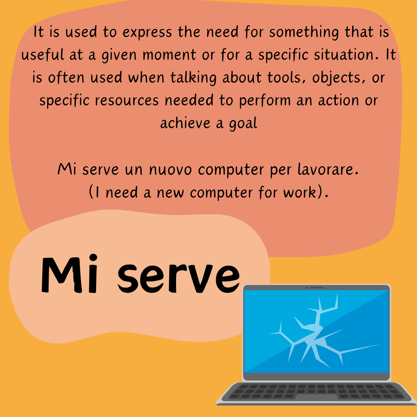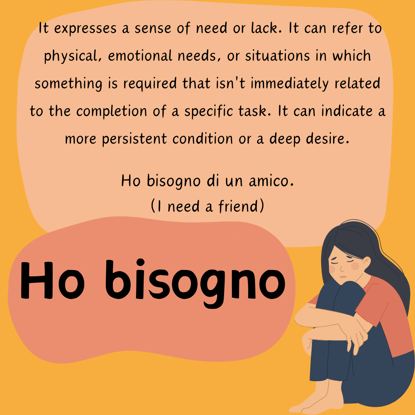Servire vs Avere Bisogno


Ever encountered sentences in Italian and found yourself pondering whether to opt for "servire" or "avere bisogno"? Though both phrases translate to expressing a need in English, their usage carries nuanced distinctions that are not directly interchangeable, enriching your command of the Italian language.
Servire gently implies a necessity or requirement, adopting a more passive tone. Imagine it as saying "X is needed." For instance, "Mi serve un nuovo computer per lavorare" translates to "I need a new computer for work." This phrasing subtly suggests that the object (a new computer, in this context) is crucial for an activity, without directly spotlighting the person's active desire.
Conversely, avere bisogno di conveys a more direct and personal touch, meaning "to have need of." It accentuates the individual's specific need or desire, as illustrated in "Ho bisogno di un amico" (I need a friend). This expression vividly highlights the speaker's personal longing or requirement for something or someone.
🌟 Time to Practice! 🌟
We're eager to see your mastery in action! Share your own sentences using either "servire" or "avere bisogno" in the comments below.


